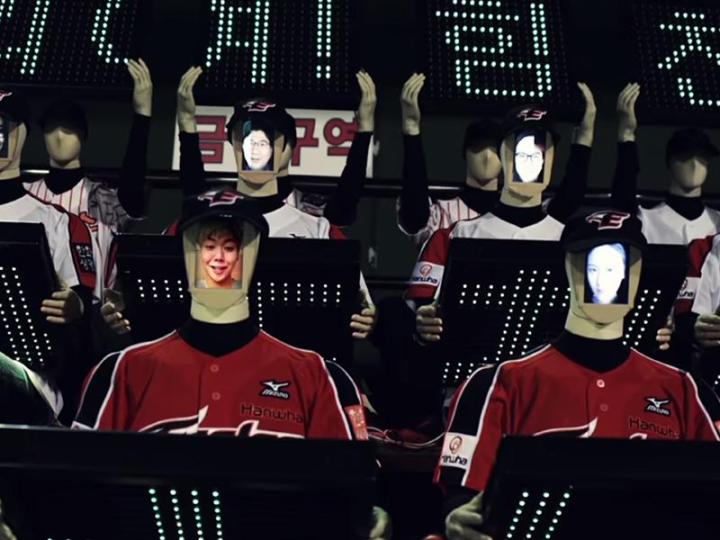
“Those who cannot come to the stadium watch the game on the Web or their phones,” explains the official video showing off the innovation. “What if there was a robot cheering for those fans? At important moments the Fanbots encourage group cheering, so the fan and the Fanbots make victory together.”
The Fanbots can display messages sent from computers and phones, and are able to work in unison to hold up scrolling LED panels that transmit messages of encouragement. They can also be programmed to do a ‘slow wave’ that mimics the actions of the real human fans in the stadium. Supporters are able to set up customized profiles to personalize their messages.
The Hanwah Eagles will be hoping that getting extra encouragement can inspire them to greater feats. Of course it’s a daft and slightly creepy idea, but there is some sense to it — as Twitter showed during the World Cup, fans love to get involved over social media, and this is one way of tapping into and using that online enthusiasm.


